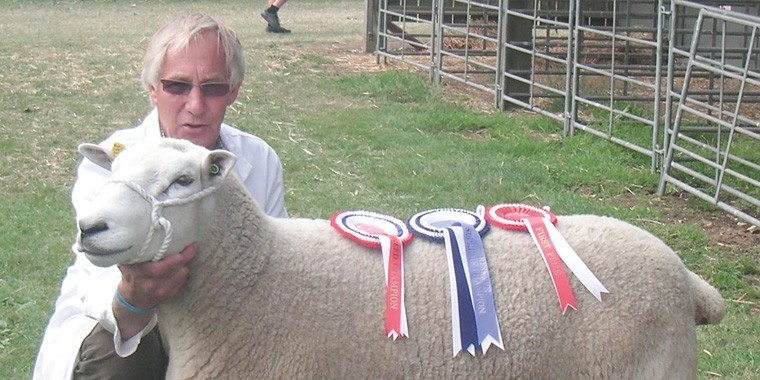“Addicted to sheep” is not some sort of social problem, but the title of a full length documentary film, which has been on general release for a couple of months now.
A delightful film, it is largely the work of Magali Pettier, a young dairy farmer’s daughter from Brittany. It is not about sheep as suggested by the title, but a film about a year in the life of the Hutchinson family, a real family on a real farm and their day to day struggles as tenant farmers on a small hill farm in North Yorkshire.
This is a family that is striving to make a living from the farm, with a desire to breed the ideal Swaledale tup. The film is not just the story of a sheep farmer but the Hutchinson family, their problems as tenant farmers, the children experiencing some of the harsher realities of sheep farming and the family’s interactions with the local community – particularly the children in the small village school. Most of all it describes a family happy with their lot, enjoying what they do.
The film is certainly not twee. It is full of social comment, sensitively made, but without being sentimental, it is certainly thought provoking and really worth seeing if you have the opportunity. I was fortunate enough to see the film today along with a hundred or so agricultural students and I know that, once they have had the opportunity to reflect on what they have seen, it is a film which will generate a lot of searching questions and discussion points. Details of the film are available online, so why not indulge your own addiction to sheep?
Many sheep farmers will identify with the family in the film. I suspect that many of us are addicted to our sheep, probably more so than many would admit. Sit down with any sheep keeper and conversations will inevitably turn to sheep. We live what we do, we regularly smell of sheep, we talk to our sheep, we enjoy simply being with our sheep, watching our sheep. Watch any sheep farmer in the market; they are simply not able to stand next to a pen of sheep without their hands wandering, subconsciously, onto the backs of the sheep.
But sheep are fascinating animals; part of that fascination is that nobody knows all there is to know about sheep, and that sheep will inevitably catch you out by doing something unexpected – sometimes good, sometimes bad, and sometimes funny and sometimes just plain stupid. Sheep, particularly lambs, can be a real thief of time; it is easy to loose oneself just watching sheep going about their own daily business.
Yesterday morning while doing the rounds of the “girls,” a couple of the ewes caught my eye, one a seven year old the other a ewe teg. They were both desperately trying to attract the attention of the ram (it’s not always the boys that do the chasing), and each time one managed to manoeuvre herself next to the ram the other would squeeze in between to shove her rival out of the way. Both determined, but very good natured, and all this while the ram quite happily carried on grazing, just playing it cool; needless to say both the ewes were sporting a bright orange rump by the evening.
It is easy to see how people can become addicted to sheep. I see it quite often with students, those that may arrive at college with no particular sheep awareness, but gradually begin to develop a sheep curiosity, a curiosity that grows into an interest, an interest that strengthens and becomes a passion and then they are hooked; another sheep addict, but that is just what the industry needs – young sheep addicts with a passion for their sheep.
At the end of the month (October) I will be spending a weekend in Eastwood, Nottinghamshire with a couple of hundred other sheep addicts at the 2015 sheep breeders round table which this year is entitled “Get better or get gone,” an interesting title which should produce some thought provoking papers. But it’s a title with quite dark undertones, the implication being that we and our sheep all need to get better or face an inevitable exit.
The latter is certainly not a thought that any sheep addict will relish. But don’t we all strive to get better all of the time, when we are choosing our breeding stock whether home bred or purchased. We almost all seek out sheep that at the very least are as good as those that are already in the flock. But generally what we really want is sheep that are just a bit better, with better genetics, not just looking better: that’s the whole point of breeding sheep. Taking little steps, making genetic progress with each new generation of lambs. I hope that we’re doing the job right and I’ll let you know after the conference.




